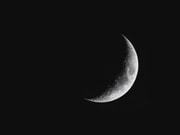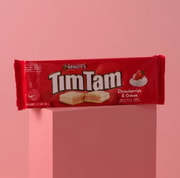Local Optus store suffers shocking consequences after this council's decision
By
Danielle F.
- Replies 2
As Aussies celebrate the unique and quirky wildlife of the country, it's not every day that people hear about the chaos they could cause in the cities.
Yet, for one store situated in a bustling CBD, the presence of wildlife became less of a novelty and more of a nuisance.
An Optus store in Rundle Shopping Centre has been under siege by droppings from a flock of tree martins.
The situation escalated when the council, in an attempt to address complaints about bird droppings, covered the birds' traditional roosting trees with netting.
This controversial move was meant to redirect the birds to a 'less busy location'.
However, it left many locals scratching their heads in disbelief.
Tree martins are a small species of birds known for its aerial acrobatics and sociable nature.
The netted trees have now become a barrier and have caused distress among the birds.
As a result, the birds sought refuge in the most unlikely of places, including the Optus store in the said shopping centre.
These tree martins have been flying around the area, leaving their mark in a less-than-pleasant manner.
Wildlife rescuer Rachel described the scene as 'carnage', with shoppers sharing their shock and concern over the birds' plight.
Tree martins have been a familiar sight on Leigh Street for over a decade.
These migratory birds, which come from the Northern Territory and Papua New Guinea, often seek respite during the summer months.
However, the council's actions disrupted this natural pattern and caused chaos in one of Adelaide's busiest shopping areas.
An Optus spokesperson acknowledged the issue and explained that the birds were entering the store through holes in the shopping centre’s infrastructure.
The company has been working with its landlord to address these structural issues.
They are also in contact with wildlife rescuers like Rachel to find a permanent solution to the problem.
In a previous article, an Apple Store’s reflective glass facade became a death trap for some of the disoriented birds.
Despite Apple's efforts to dim the lights, the problem persisted and led to a distressing scene for both the birds and the public.
The council's decision to net the trees was initially described as a 'trial'.
However, it drew criticism from conservation groups and experts.
The Australian Conservation Foundation highlighted the legal protection afforded to tree martins under federal nature laws.
They called the council's actions 'ill-thought-out and blunderous.'
The Biodiversity Council has also weighed in on the situation.
Professor Hugh Possingham criticised the council's wildlife management approach.
He compared it with a more wildlife-friendly attitude seen in Europe.
Urban planning expert Professor Sarah Bekessy also emphasised the city council’s need to learn to coexist with wildlife, as seen in other countries like the United States.
The Adelaide Economic Development Agency, responsible for promoting Rundle Shopping Centre, has yet to comment on the situation.
As Australian cities continue to evolve, councils must find ways to accommodate and celebrate wildlife.

Have you witnessed any wildlife-related issues in your local area? How do you think city councils should handle native species in urban spaces? Share your thoughts and opinions on this matter with us in the comments section below.
Yet, for one store situated in a bustling CBD, the presence of wildlife became less of a novelty and more of a nuisance.
An Optus store in Rundle Shopping Centre has been under siege by droppings from a flock of tree martins.
The situation escalated when the council, in an attempt to address complaints about bird droppings, covered the birds' traditional roosting trees with netting.
This controversial move was meant to redirect the birds to a 'less busy location'.
However, it left many locals scratching their heads in disbelief.
Tree martins are a small species of birds known for its aerial acrobatics and sociable nature.
The netted trees have now become a barrier and have caused distress among the birds.
As a result, the birds sought refuge in the most unlikely of places, including the Optus store in the said shopping centre.
These tree martins have been flying around the area, leaving their mark in a less-than-pleasant manner.
Wildlife rescuer Rachel described the scene as 'carnage', with shoppers sharing their shock and concern over the birds' plight.
Tree martins have been a familiar sight on Leigh Street for over a decade.
These migratory birds, which come from the Northern Territory and Papua New Guinea, often seek respite during the summer months.
However, the council's actions disrupted this natural pattern and caused chaos in one of Adelaide's busiest shopping areas.
An Optus spokesperson acknowledged the issue and explained that the birds were entering the store through holes in the shopping centre’s infrastructure.
The company has been working with its landlord to address these structural issues.
They are also in contact with wildlife rescuers like Rachel to find a permanent solution to the problem.
In a previous article, an Apple Store’s reflective glass facade became a death trap for some of the disoriented birds.
Despite Apple's efforts to dim the lights, the problem persisted and led to a distressing scene for both the birds and the public.
The council's decision to net the trees was initially described as a 'trial'.
However, it drew criticism from conservation groups and experts.
The Australian Conservation Foundation highlighted the legal protection afforded to tree martins under federal nature laws.
They called the council's actions 'ill-thought-out and blunderous.'
The Biodiversity Council has also weighed in on the situation.
Professor Hugh Possingham criticised the council's wildlife management approach.
He compared it with a more wildlife-friendly attitude seen in Europe.
Urban planning expert Professor Sarah Bekessy also emphasised the city council’s need to learn to coexist with wildlife, as seen in other countries like the United States.
The Adelaide Economic Development Agency, responsible for promoting Rundle Shopping Centre, has yet to comment on the situation.
As Australian cities continue to evolve, councils must find ways to accommodate and celebrate wildlife.
Key Takeaways
- An Optus store in Adelaide was inundated with bird poo after council netting prevented the birds from roosting in their usual location.
- The City of Adelaide’s decision to net the trees was an attempt to move the birds to a ‘less busy location’, yet resulted in unintended consequences.
- The Australian Conservation Foundation and Biodiversity Council have criticised the council's decision, highlighting its negative impact on wildlife.
- The situation raised broader discussions about the value of wildlife in cities and the importance of finding ways to coexist with native birds and animals.








